 |
Sodium Acetate Trihydrate Anhydrous USP Analytical Reagent FCC Food Grade Supplier Exporter Manufacturers' Representative |
Email: info@ammol.org |
Call Toll Free +1-855-552-6665 |
Sodium Acetate Trihydrate Anhydrous
CAS Number:
Sodium Acetate Anhydrous CAS Number 127-09-3
Sodium Acetate Trihydrate CAS Number 6131-90-4
Molecular Formula: CH3COONa & CH3COONa-3H2O
Molecular Weight: 82 & 136.08
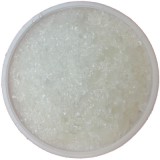
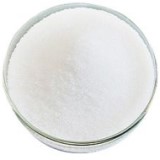
Sodium Acetate Trihydrate Sodium Acetate Anhydrous
Sodium Acetate USP Grade Specifications
Sodium Acetate USP
C2H3NaO2-3H2O -- 136.08
Assay: Sodium Acetate contains three molecules of water of hydration, or is anhydrous. It contains not less than 99.0 percent and not more than 101.0 percent of C2H3NaO2, calculated on the dried basis.
Labeling: Label it to indicate whether it is the trihydrate or is anhydrous. Where Sodium Acetate is intended for use in hem dialysis, it is so labeled.
Identification: A solution responds to the test for Sodium and for Acetate.
pH: between 7.5 and 9.2, in a solution in carbon dioxide-free water containing the equivalent of 30 mg of anhydrous sodium acetate per mL.
Loss on drying: Dry at 120 to constant weight: the hydrous form loses between 38.0% and 41.0% of its weight, and the anhydrous form loses not more than 1.0% of its weight.
Insoluble matter: Dissolve the equivalent of 20 g of anhydrous sodium acetate in 150 mL of water, heat to boiling, and digest in a covered beaker on a steam bath for 1 hour. Filter through a tarred filtering crucible, wash thoroughly, and dry at 105 : the weight of the residue does not exceed 10 mg (0.05%).
Chloride: A portion equivalent to 1.0 g of anhydrous sodium acetate shows no more chloride than corresponds to 0.50 mL of 0.020 N hydrochloric acid (0.035%).
Sulfate: A portion equivalent to 10 g of anhydrous sodium acetate shows no more sulfate than corresponds to 0.50 mL of 0.020 N sulfuric acid (0.005%).
Calcium and magnesium: To 20 mL of a solution containing the equivalent of 10 mg of anhydrous sodium acetate per mL add 2 mL each of 6 N ammonium hydroxide, ammonium oxalate, and dibasic sodium phosphate TS: no turbidity is produced within 5 minutes.
Potassium— Dissolve the equivalent of 3 g of anhydrous sodium acetate in 5 mL of water, add 1N acetic acid drop wise until the solution is slightly acidic, and then add 5 drops of sodium cobalt nitrite TS: no precipitate is formed.
Aluminum: (where it is labeled as intended for use in hem dialysis)— the limit is 0.2µ =g per g.
Heavy metals: the limit is 0.001%.
Organic volatile impurities: meets the requirements.
Sodium Acetate FCC Food Grade Specifications
C2H3NaO2 Formula weight, anhydrous 82.03
C2H3NaO2-3H2O Formula weight, trihydrate 136.08
DESCRIPTION
Sodium Acetate occurs as colorless, transparent crystals or as a granular, crystalline or white powder. The anhydrous form is hygroscopic; the trihydrate effloresces in warm, dry air. One gram of the anhydrous form dissolves in about 2 mL of water; 1 g of the trihydrate dissolves in about 0.8 mL of water and in about 19 mL of alcohol.
Function: Buffer.
REQUIREMENTS
Identification: A 1:20 aqueous solution gives positive tests for Sodium and for Acetate.
Assay: Not less than 99.0% and not more than 101.0% of C2H3NaO2 after drying.
Alkalinity Anhydrous: Not more than 0.2%; Trihydrate: Not more than 0.05%.
Lead: Not more than 2 mg/kg.
Loss on Drying: Anhydrous: Not more than 1.0%; Trihydrate: Between 36.0% and 41.0%.
Potassium Compounds: Passes test.
Sodium Acetate Anhydrous Analytical Reagent Grade Specifications
CH3COONa
Formula Weight 82.03
CAS Number 127-09-3
REQUIREMENTS
Assay: 99.0% C2H3O2Na
pH of a 5% solution: 7.0-9.2 at 25C
MAXIMUM ALLOWABLE
Insoluble matter: 0.01%
Loss on drying at 120C: 1.0%
Chloride (Cl): 0.002%
Phosphate (PO4): 0.001%
Sulfate (SO4): 0.003%
Calcium (Ca): 0.005%
Magnesium (Mg): 0.002%
Heavy metals (as Pb): 0.001%
Iron (Fe): 0.001%
Sodium Acetate Trihydrate Analytical Reagent Grade Specifications
NaC2H3O2 . 3H2O
Formula Weight 136.08
CAS Number 6131-90-4
REQUIREMENTS
Assay: 99.0-101% NaC2H3O2-3H2O
pH of a 5% solution: 7.5-9.2 at 25C
Substances reducing permanganate: Passes test
MAXIMUM ALLOWABLE
Insoluble matter: 0.005%
Chloride (Cl): 0.001%
Phosphate (PO4): 5 ppm
Sulfate (SO4): 0.002%
Heavy metals (as Pb): 5 ppm
Iron (Fe): 5 ppm
Calcium (Ca): 0.005%
Magnesium (Mg): 0.002%
Potassium (K): 0.005%.
We also supply Sodium Acetate Trihydrate Anhydrous of BP Ph Eur Grade.
Please visit SDS Safety Data Sheet of Sodium Acetate Trihydrate Anhydrous Suppliers.
American Molecules, also known as ammol.org is a distributor, supplier and manufacturers' representative of all types of Pharmaceuticals, Functional Ingredients, Excipients and Specialty Chemicals in Texas USA. Our principals manufacture supply and export USP NF BP, Ph Eur, etc grades of chemicals pure and reagent grade, mineral fortifiers, FCC food grade. Tailor made particle size and customized specifications are offered. The principal's facility is having one or more of the certifications like FDA approval and GLP, cGMP, ISO9001, ISO14001, ISO/IEC 17025, ISO22000, FSSC 22000, ISO45001, FSSAI, Kosher, HALAL, COPP, WHO-GMP certified and Written Confirmation (WC) for export to Europe is available. The manufacturers suppliers and exporters observe WHO Good Manufacturing Practices and Good Laboratory Practices.

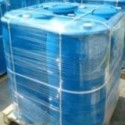
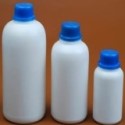
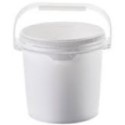

Suppliers and Manufacturers' Representative:

9910 Bent Oak Dr
Houston, TX 77040, USA
Call Toll Free: 1-855-55-AMMOL 1-855-552-6665
Email: info@ammol.org